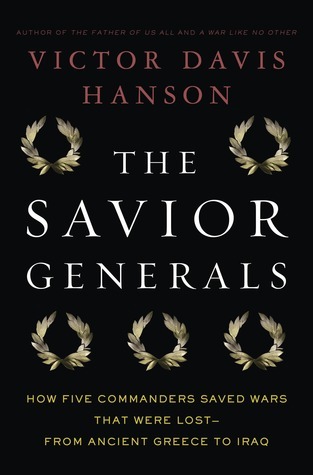What do you think?
Rate this book


320 pages, Hardcover
First published May 1, 2013
Do not believe that high technology and globalized uniformity have made military leadership, especially eccentric leadership, outdated or even rare. Instead, in the future age of robotic soldiers, fleets of drones, and deadly computer consoles, there will always be commanders waiting in the shadows for their moment, different sorts of people who thrive on chaos and ignore criticism. Whether they will be listened to next time—and whether lost wars are to be saved—hinges on how well we have learned from the savior generals of the past.
Whether consciously or not, David Petraeus for two decades had been preparing himself neither for conventional warfare nor for counterterrorism special operations—nor even for classic jungle or rural insurgency. Instead, he had prepped for large-scale postbellum occupation and reconstruction in highly urbanized, extremely hostile populations—exactly what Iraq would be like in 2003.